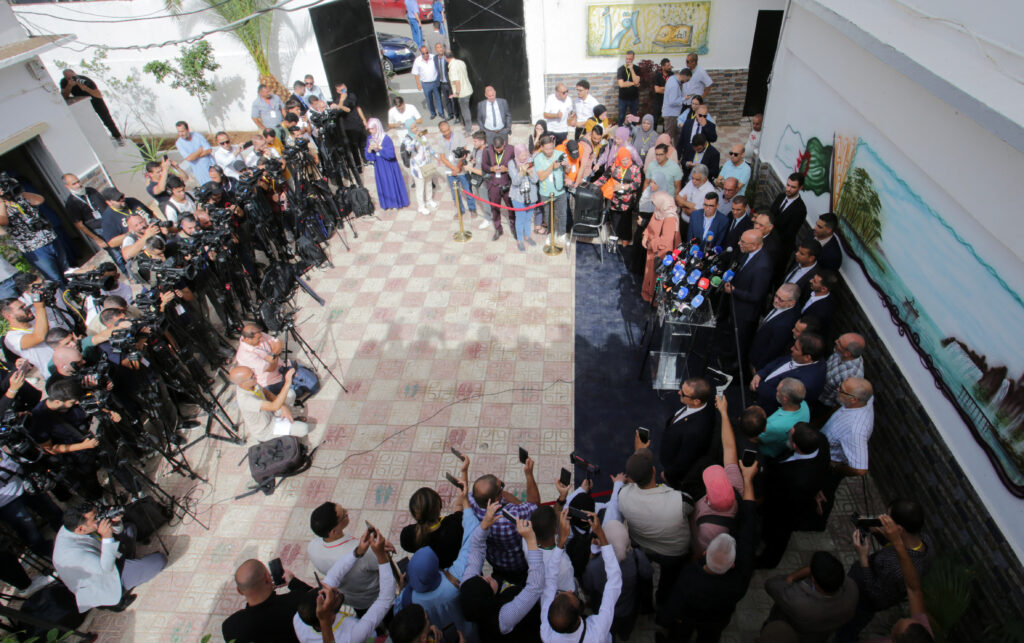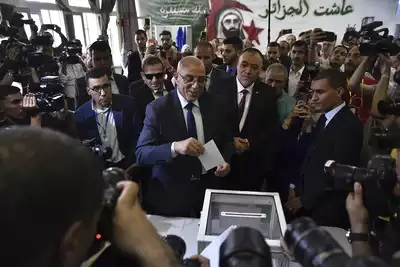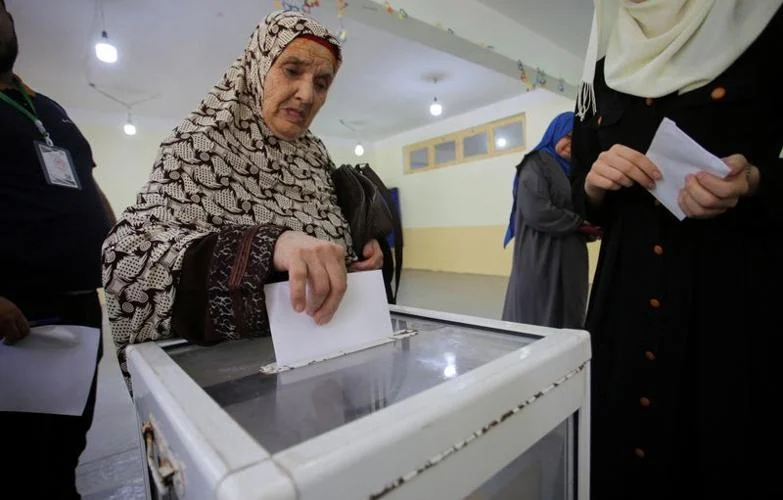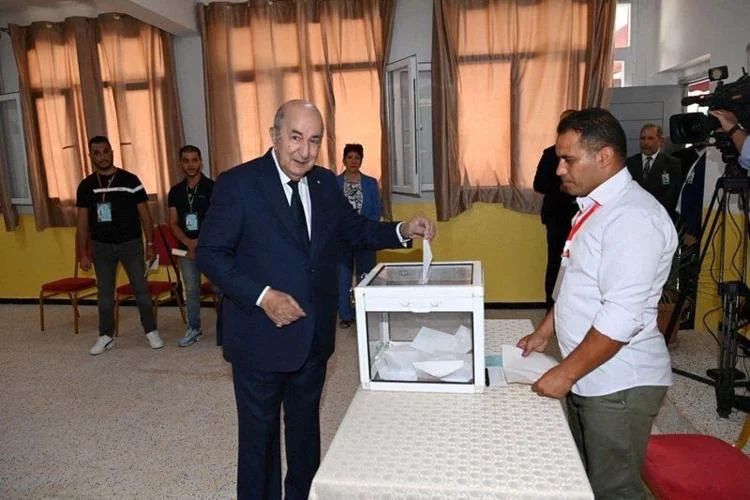Algerian authorities announced on Sunday that incumbent President Abdulmadjid Tebboune has won re-election with an overwhelming 95% of the vote in Saturday’s election. However, the results have been met with allegations of irregularities from a rival candidate, and voter turnout remained below 50%.

According to official preliminary results, Tebboune secured a landslide victory, easily avoiding a second-round runoff. His closest competitors, Abdelaali Hassani Cherif and Youcef Aouchiche, received 3% and 2% of the votes respectively. The electoral commission reported a voter turnout of 48%.
Tebboune, who is backed by the military, faced only nominal opposition in this election. Both Hassani Cherif, a moderate Islamist, and Aouchiche, a moderate secularist, ran with the tacit approval of Algeria’s powerful establishment.

However, Hassani Cherif’s campaign has raised serious concerns about the integrity of the election. Ahmed Sadok, the campaign’s spokesperson, alleged that polling station officials were pressured to inflate results.
The campaign also claimed there were failures to deliver vote-sorting records to candidates’ representatives and instances of proxy group voting. Sadok declared the election “a farce,” asserting that their candidate had won far more votes than officially announced, citing the campaign’s own regional tallies.
In response to these allegations, Mohammed Charfi, the head of the electoral commission, stated that the body had worked diligently to ensure transparency and fair competition among all candidates.

Tebboune’s re-election is expected to maintain Algeria’s current governing approach, which has seen a return to generous social spending fueled by increased energy revenues. Since taking office in 2019, Tebboune has pledged to raise unemployment benefits, pensions, and expand public housing programs.
The election took place against the backdrop of Algeria’s recent economic improvements, largely due to increased European demand for Algerian gas following Russia’s invasion of Ukraine in 2022. This boost in energy prices has replenished state revenues after years of declining foreign exchange reserves.
Despite these economic gains, Algeria continues to face challenges. Unemployment, while down from pandemic highs, remained above 12% last year, and inflation remains a concern. These economic difficulties may have contributed to the relatively low voter turnout.

Tebboune’s first election in 2019 came during the mass “hirak” protests that ousted his long-serving predecessor, Abdulaziz Bouteflika. Since then, Tebboune has supported a tough approach from security forces, resulting in the imprisonment of several prominent dissidents.
As Algeria moves forward under Tebboune’s continued leadership, the country faces both domestic and international challenges. These include balancing its role as a key gas provider to Europe, navigating regional rivalries, and addressing internal economic and social issues.
REUTERS



